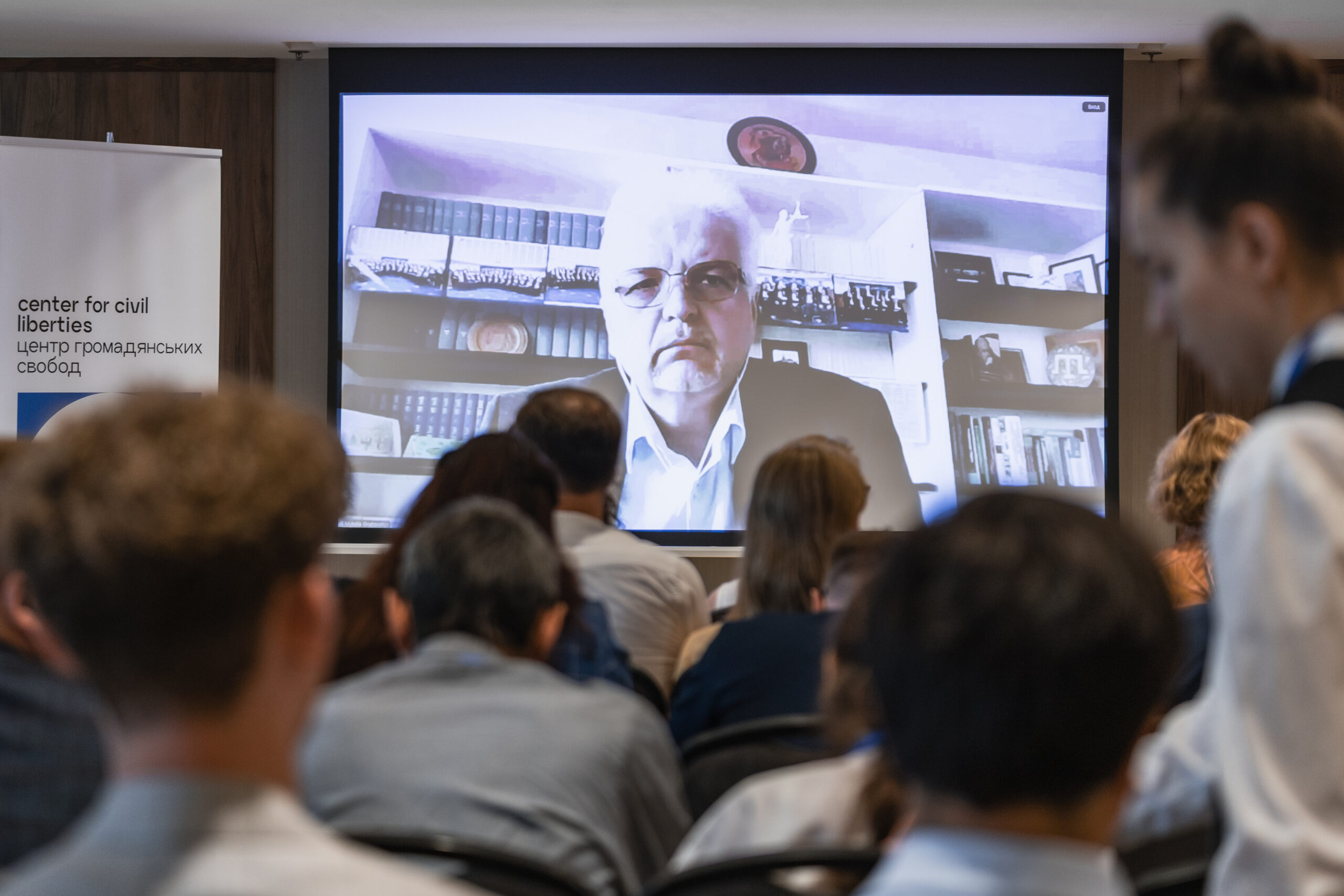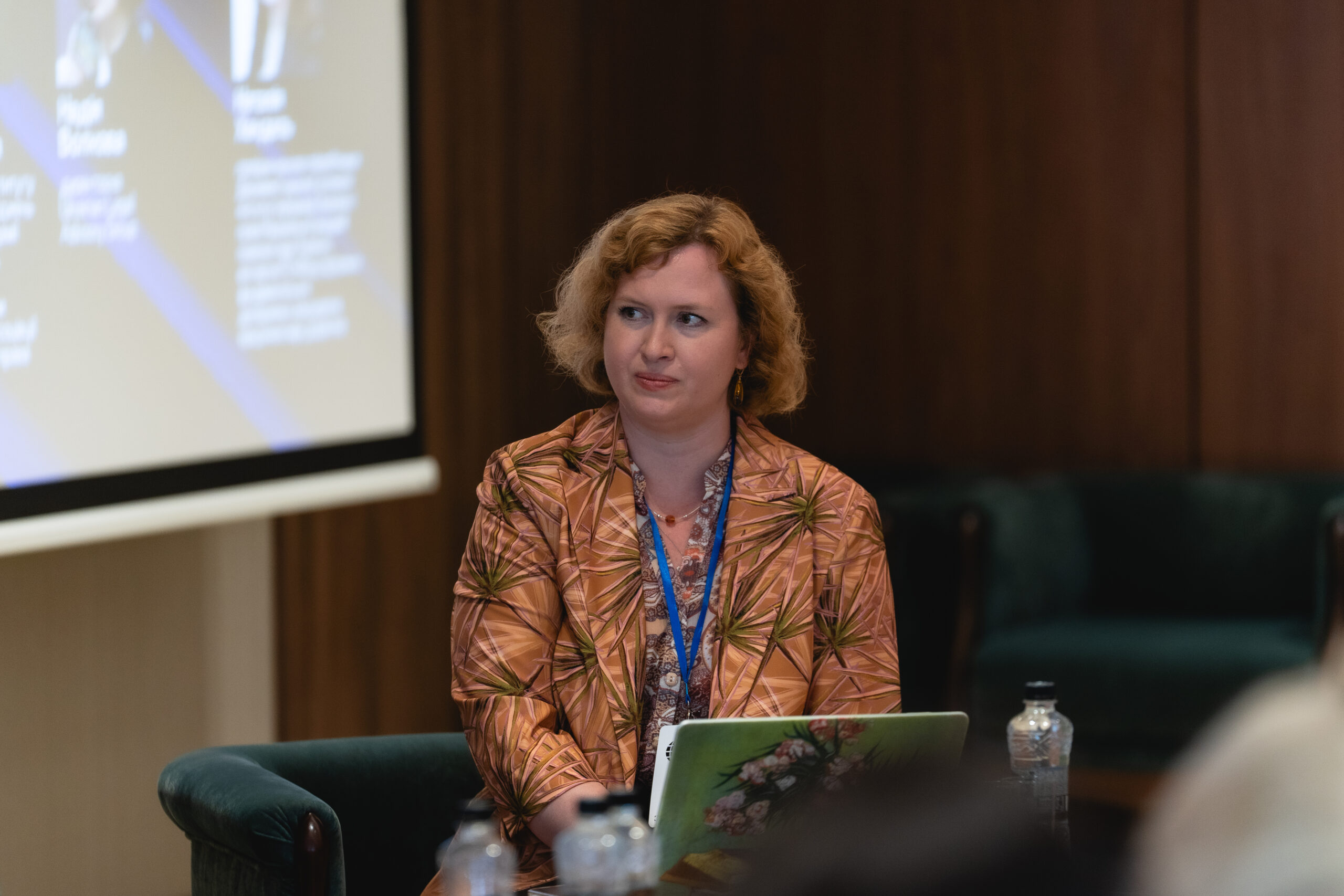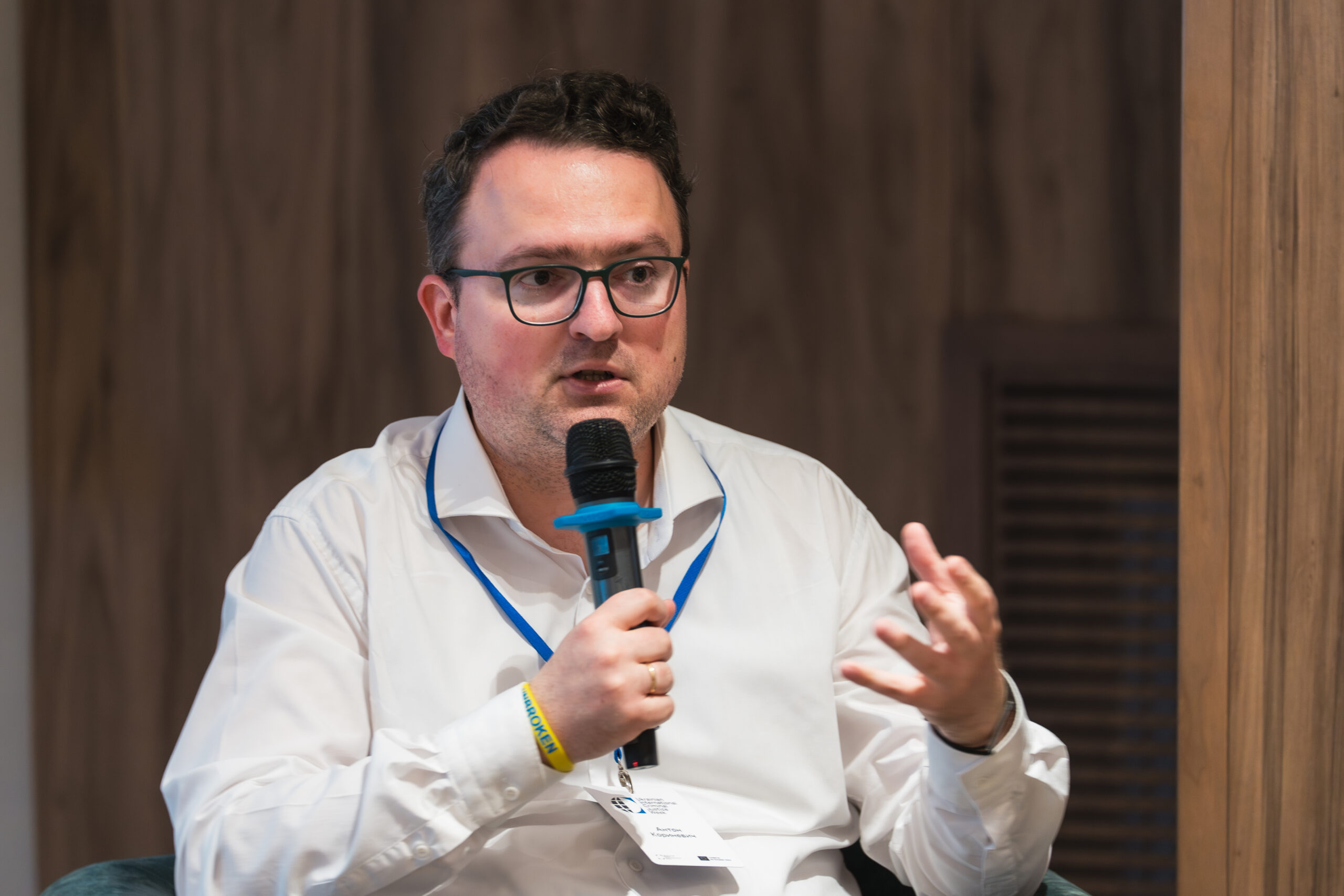International criminal law is not going through its best times. Indeed, the International Criminal Court (ICC) – the greatest achievement of the “renaissance” period of international criminal law, which took place in the 1990s-2000s – is under constant attack. This ranges from the failure of States Parties to the Rome Statute to comply with its decisions, to certain states’ withdrawal from this international treaty, to the scandal involving accusations of sexual harassment against the ICC Prosecutor, and culminating in sanctions imposed by the United States on certain court officials. The new wave of armed conflicts across the globe is accompanied by a significant increase in the number of international crimes committed – something, unfortunately, felt almost daily by the citizens of Ukraine. This strengthens the position of those who take a sceptical view of the idea of international criminal law and international criminal justice.
On the other hand, it cannot be said that international criminal law is in a state of complete stagnation. Perpetrators of international crimes – although by no means all – are being convicted by the ICC and by national courts. Despite all the difficulties, within the framework of the Council of Europe, a Special Tribunal for the crime of aggression against Ukraine has been established. The work of the UN International Law Commission offers the prospect of strengthening the principle of non-applicability of functional immunities to perpetrators of international crimes. Recently, a large group of states, including Ukraine, signed the Ljubljana–The Hague Convention on International Cooperation in the Investigation and Prosecution of the Crime of Genocide, Crimes against Humanity, War Crimes and Other International Crimes. Work is also ongoing on the UN Convention on the Prevention and Punishment of Crimes against Humanity, as well as on amendments to the Rome Statute that would expand the ICC’s jurisdiction over the crime of aggression.
So, which trends – negative or positive – will shape the development of international criminal law in the near future? We seek the answers together with Mykola Gnatovskyy, Judge of the European Court of Human Rights from Ukraine, with the discussion moderated by Kostiantyn Zadoia, expert at the Centre for Civil Liberties, Candidate of Juridical Sciences, and Professor at Taras Shevchenko National University of Kyiv.
“The Ljubljana–The Hague Convention will enter into force by 2030, and the UN Convention on the Prevention and Punishment of Crimes against Humanity – by 2040”
– Our question-and-answer session is entitled “International Criminal Law. 2030.” But I will not be putting questions to Mr. Gnatovskyy; instead, I will be presenting to him certain forecasts regarding the future of international criminal law and international criminal justice, and asking him to comment on how realistic he considers each forecast to be. I should probably make a caveat here: the fact that I am presenting a forecast does not mean that I am confident it will come true. On the contrary, I am certain that most of them will not. Nonetheless, it is still worth discussing these important matters.
So, Mr. Gnatovskyy, the first forecast is as follows: by 2030, the Ljubljana–The Hague Convention on International Cooperation in the Investigation and Prosecution of the Crime of Genocide, Crimes against Humanity, War Crimes and Other International Crimes, as well as the UN Convention on the Prevention and Punishment of Crimes against Humanity, will have entered into force.
– I think these two conventions should be treated separately in your forecast. Their prospects are quite different, at least in terms of immediate chronology. The Ljubljana–The Hague Convention will enter into force, because the formal requirements for it to begin its life as an international treaty are relatively low. And they will be met very quickly, given how many states have already signed the convention. By 2030, I believe it will be in force – the only question being among how many states. Conventions on legal cooperation, to which this treaty belongs, operate in bilateral relations between any two states that are parties to it. It is therefore important that as many states in the world as possible are covered by this convention. Even though it primarily addresses technical matters, it is genuinely very important and progressive.
As for the future Convention on the Prevention and Punishment of Crimes against Humanity, I think it is almost certain that it will not have entered into force by 2030. If by late 2028 or early 2029 it is finalised, the signing process will then begin, followed by ratifications. These will undoubtedly happen, and in the end this convention will probably attract more states parties than the Ljubljana–The Hague Convention. But it will simply take longer. This convention is interesting because it attempts to apply the model of the Convention on the Prevention and Punishment of the Crime of Genocide to crimes against humanity – something that may seem obvious at first glance, but which encounters numerous nuances. My prediction is that it will enter into force by 2040.
– I suggest we now talk about the sources of international criminal law, specifically the Rome Statute and the much-discussed amendment to it, which, unfortunately, also concerns events taking place in Ukraine.
Here is the forecast: by 2030, the crime of ecocide will fall within the jurisdiction of the International Criminal Court.
– I must admit that my position on the crime of ecocide has almost diametrically changed over the past 15–20 years. I began with considerable scepticism towards this crime. It did not seem to me a serious initiative – particularly at the level of its inclusion in national criminal law, which had occurred as a result of the long-ago work of the UN International Law Commission on the draft code of crimes against the peace and security of mankind, and the old debates on the matter. In practice, there had been no examples of applying the relevant provisions of national criminal codes – including in Ukraine.
In fact, the issue is very important and serious. I began to reflect on it more carefully when various concrete proposals for amendments to the Rome Statute appeared. Incidentally, one of the greatest enthusiasts of the initiative to include ecocide within the ICC’s jurisdiction is Philippe Sands, who in February 2022 formulated the idea of a Special Tribunal for the crime of aggression against Ukraine. He is a leading world-class expert in both international environmental law and international criminal law – a rare combination!
States are failing to comply with their obligations not to cause serious, long-term harm to the environment during armed conflicts. These obligations exist in international humanitarian law – in the 1977 First Additional Protocol to the Geneva Conventions. There is also the Convention on the Prohibition of Military or Any Other Hostile Use of Environmental Modification Techniques (the ENMOD Convention). In practice, these treaty obligations are implemented very weakly. And the inclusion in the Rome Statute of crimes against the environment as a war crime does not seem particularly effective. Assessing the prospects, I think there is a fair chance that the Assembly of States Parties to the Rome Statute will accept the proposal to place ecocide within the ICC’s jurisdiction. After all, the proposal exists, it is attractive and essentially correct. Therefore, I hope it will be adopted, and that there will not be significant opposition. I would say the chances are fifty–fifty.
– And to follow on directly from the previous forecast, here is the next one: by 2030, at least one more war crime will be added to the jurisdiction of the International Criminal Court.
There is a high likelihood that the list of war crimes committed in non-international armed conflicts will be expanded. The catalogue of war crimes for non-international armed conflicts is significantly shorter than for international armed conflicts. Formally, these will be new crime definitions, but in substance it will simply be the removal of what I consider to be an artificial and harmful distinction between the two types of armed conflict.

As for the addition of fundamentally new war crimes to the Rome Statute, the likelihood is lower. I recall that there was a proposal to define the use of anti-personnel mines as a war crime. Given the situation in the world, it is clear that this will not happen in the foreseeable future. As for other topics, the most pressing issue in my view is liability for war crimes committed through the use of autonomous weapons systems – drones and robots using artificial intelligence. This deserves serious consideration.
“The reality is that a person first ceases to be a head of state, and only then finds themselves before the International Criminal Court.”
– I propose we now turn to the institutional mechanisms for implementing international criminal law, and in particular to the International Criminal Court. I will make a forecast which, I am sure, is of concern to many Ukrainian citizens.
The forecast is as follows: by 2030, at least one serving head of state will appear before the International Criminal Court as a defendant.
– It is difficult to make a positive forecast, because by the time a head of state physically appears before the ICC, it is most likely that they will no longer be the serving head of state. Of course, one can imagine a situation in which a change of power occurs in a particular country, and the new authorities hand over the head of state to the ICC, even if that person might still formally be recognised by someone as holding office.
However, the reality is probably that a person first ceases to be a head of state, and only then finds themselves before the International Criminal Court. This, incidentally, is the reason for the fierce debate around the creation of a Special Tribunal for the crime of aggression against Ukraine: the question of the immunities of serving heads of state, heads of government, and foreign ministers.
The International Criminal Court has no independent enforcement mechanism for its orders. This means that states must cooperate with it – whether it is the state to which the head of state or other high-ranking official belongs, or states that have militarily defeated that state and, accordingly, detained and arrested such a person. In that case, handing them over to the ICC is the ideal option for all. We shall see…
– At the beginning of our discussion, I mentioned that we are witnessing the creation of a Special International Criminal Tribunal to deal with the crime of aggression against Ukraine.
And continuing on from that, here is the next forecast: by 2030, at least one more special international criminal tribunal will be created.
– I think not. Although it cannot be ruled out entirely, depending on how the situation develops. The priority will be the consideration of crimes under international law by the International Criminal Court – the permanent body of international criminal justice. That said, in some contexts, the consideration of allegations of the most serious crimes under international law in specialised tribunals could at least be regarded as an option where the ICC faces serious difficulties – for example, in the situation with Israel and Palestine. However, I must admit to having great doubts that this is possible.
Incidentally, financial considerations can also influence the creation of new tribunals. When, in early March 2022, we put forward the idea of creating a Special Tribunal for the crime of aggression against Ukraine, we insisted that the costs of such a tribunal would be minimal. But now, as specific budgets are being calculated, conversations are beginning about it potentially turning into an expensive project. I still believe that the budget can be quite modest, and I have no doubt that the money will be found in any case. However, if the tribunal for the crime of aggression turns out to be expensive, then the costs for any new tribunal dealing with particular war crimes or crimes against humanity will inevitably be higher. The crime of aggression is so general and large-scale that a great deal of fieldwork and witness interviewing is probably not envisaged – but for war crimes and crimes against humanity, such work is unavoidable.
“Some states – Hungary, for example – will withdraw from the Rome Statute, and some others, on the contrary, will join”
– Thank you. One more forecast concerning the International Criminal Court.
It is as follows: by 2030, at least one state will join the Rome Statute and at least one state will withdraw from it.
– Quite likely. Hungary has not yet formally withdrawn, but is already on the way out. It will withdraw at least under the current government. What will happen under the next – we shall see.
Undoubtedly, there will be more withdrawals. Previously, several African states began to withdraw or had withdrawn, due to accusations that the court was dealing only with Africa. That is now in the past. The current reason why some states are leaving lies in the nihilistic approach to matters of international law demonstrated by the United States of America – and not only them. That is on the one hand. On the other, there are states that have never seriously considered complying with anything at all. And pressure on weaker states from the US or China can also potentially lead to such withdrawals.
There will be withdrawals, but there will also be new accessions. Clearly, there is potential for that as well. The accession of Armenia and Ukraine is a very positive development for the ICC, and it will not end there.
So I believe this process will go in both directions. The situation can change in an extremely short time if the creeping world war currently under way takes other forms and eventually, one way or another, is resolved. After major wars and upheavals, international criminal law develops rapidly. At present, it feels as though everything is bad, but at some point we must reach the lowest point – and from there everything could become quite different.
– Thank you. Now a forecast, I would say, for the true devotees of international criminal law.
It is as follows: by 2030, at least one international human rights institution – for example, the European Court of Human Rights or the African Court on Human and Peoples’ Rights – will acquire the power to consider criminal proceedings concerning international crimes.
– That is a good question to prompt further thought about the role of regional human rights courts. The likelihood is minimal – I do not see a real chance of it happening.
After all, regional human rights courts operate within a different paradigm. It is also necessary to distinguish between regions, because in Europe the chances are minimal, and if anything emerges, it will be new structures. In Africa, there are possibilities, because the idea of a regional African court is always circulating. The project to merge the African Union Court with the African Court on Human and Peoples’ Rights and to grant it criminal jurisdiction under the Malabo Protocol has not found sufficient support. Nevertheless, in Africa the situation could change radically and quite quickly.
“Without a mechanism to ensure peace and end any aggressive wars, the foundation for humanitarian solutions is lost”
– Mr. Gnatovskyy, here is my final forecast. It is probably not entirely about international criminal law, but I still think it is connected to it.
It is as follows: by 2030, all European states will withdraw from the Ottawa Convention on the prohibition of anti-personnel mines.
– They will not. Not all of them will withdraw. The main sponsors of this convention are European states. I cannot imagine what would have to happen for, say, Switzerland to leave this convention. So it is unrealistic.
States that do not have a land border with the Russian Federation have little incentive to leave the convention – unless, perhaps, out of solidarity with those unfortunate ones who do. But more likely they would quietly give their stockpiles of anti-personnel mines to those who do have such a border.
Overall, the situation with the Ottawa Convention highlights a problem of international humanitarian law, and indirectly of international criminal law, which cannot be ignored. Everything is very well written, but it must have a foundation. The foundation is peace and the existence of mechanisms for the prompt and effective cessation of armed conflicts – at least for the avoidance of interstate armed conflicts. This is about the effectiveness of the rules of international law prohibiting the use of force or the threat of force.

In other words, the very thing that should protect us from war – and which the United Nations system does not ensure. Ultimately, all these mechanisms are projects. They cannot operate autonomously in a vacuum. The finest ideas do not work in a vacuum.
The Ottawa Convention on the prohibition of anti-personnel mines is one of the international legal projects designed to make the world a better place – for example, to prevent children and civilians in general from being blown up by anti-personnel mines during the wars in Africa’s Great Lakes region, which lasted for decades. I recall the media campaign for the adoption of the Ottawa Convention: extremely emotionally powerful commercials during breaks in Champions League football matches – showing children playing football, and then one boy standing without a leg, unable to play. The logic and ideology of the convention are absolutely correct. But without the foundation – a mechanism to ensure peace and to end any aggressive wars – the foundation for humanitarian solutions is lost, and they do not work.
This conversation took place during the conference “Justice 2030: Scenarios for Ukraine” as part of the Ukrainian International Criminal Justice Week, organized annually by the Center for Civil Liberties around International Justice Day – 17 July.






